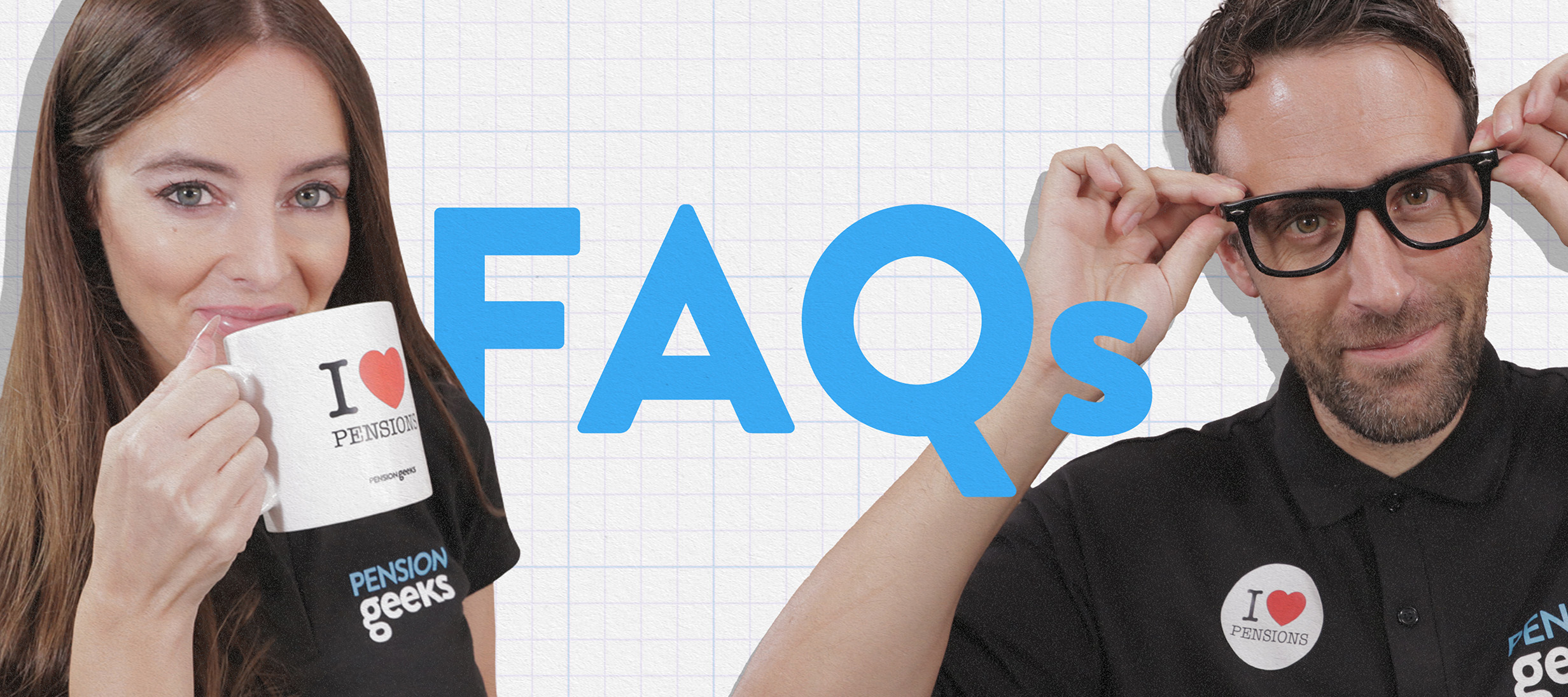FAQs
Your most frequently asked questions are answered here.

Looking for an answer to your pension question quickly? This is the place to look!
What is a pension?
Quite simply, a pension is a pot of money that you pay into with the aim of providing you with an income for later life or when you decide to retire.
There are different types of pensions, these include workplace, personal and State Pension.
Personal pensions are usually pensions you arrange yourself and are often used by people who are self-employed, not working or not eligible to join their company’s workplace pension scheme. They are always defined contribution arrangements but there is no Government-set minimum contribution level.
There are different types of personal pension. These include:
· Self-invested personal pensions (SIPPs) -
What is a workplace pension?
It’s a pot of money that you and your employer can pay into, that aims to provide you with an income for later life or when you decide to retire (you may also hear this referred to as a pension or workplace pension – it’s all the same thing).
One day, you’ll want to stop work or work less, and you will no longer have your salary to live off. You will still have bills to pay, and you’ll want to have a bit of a life, so your pension will provide you with an income to do this.
Workplace Pensions are usually two types. One type is a DC pension, and the other type is a DB pension. Defined contribution (DC) is the more common. This is where your money is put into various types of investment, such as stocks and shares and how much you’ll get in the future depends on how much is paid in and how your investments perform.
Defined benefit schemes, (sometimes called a final salary pension scheme), is a scheme that promises to pay out an income based on your service and how much you earn when you retire. Many defined benefit schemes have closed over recent years.
What is tax relief?
When you pay into your pension, some of the money that you would have paid in tax on your earnings goes into your pension pot instead – this is called tax relief.
The amount of pension tax relief you get on your pension contributions depends on the top rate of income tax you pay:
Basic rate = 20%
Higher rate = 40%
Additional rate = 45%
For example, if you are a basic-rate taxpayer and were to contribute £100 from your salary into your pension, it would actually only cost you £80. The government adds an extra £20 on top – what it would have taken in tax from £100 of your salary.
Do I really need a pension?
Well, when you’re older and no longer working, or perhaps working less, you’ll still need some money to pay your bills and to be able to enjoy the fun stuff – a pension provides you with an income for this.
You don’t have to have a pension. You may have other savings or investments that you plan to live on, but the Government decided in 2012 that, by law, you have to be enrolled into a workplace pension scheme automatically, if you are at least 22 years old, under State Pension age and earn a minimum of £10,000 a year.
You can opt-out of the workplace pension scheme, if you want to, but as your employer sets this up for you and add some of their own money into your pot too, plus you get tax relief from the government, it makes sense to stay in.
How does the State Pension work?
Your State Pension is paid to you by the Government and is in addition to any workplace pensions or private pensions you may have. The State Pension probably isn't enough on its own to provide a comfortable retirement, but it's a good boost to your savings and you should factor this into your retirement plans.
The amount you’ll get depends on how many qualifying national insurance contributions or credits you’ve made - you get these automatically either from working or being in receipt of benefits.
The full new State Pension amount is currently £203.85 per week and to get the full amount you’ll need a total of 35 qualifying years of national insurance contributions or credits - but you will get something if you have a minimum of 10 years national insurance contributions or credits.
You can check your national insurance record and how much State Pension you’re likely to get by doing a State Pension Forecast.
When you’ll get your State Pension depends on your date of birth, so it’s worth checking your State Pension Age on the Government’s website.
How much should I contribute to my pension each month?
The introduction of auto-enrolment means that, legally, there are total contributions that have to be paid into your pension. The current minimum contribution is 8%. Your employer has to pay 3% of this and you must make up the other 5%.
If you can afford to pay in more than the minimum though, you should try to. When it comes to retirement, saving as much as possible, as early as possible, is the best way to build up a substantial pot of money for your future.
A really good rule of thumb to work towards is saving half your age. So, if you start saving at age 22, you should be considering saving at least 11% of your salary into your pension.
When should I start saving into a pension?
As soon as you can - even if it’s just with a small amount. The money you pay into your pension is invested and the longer you can leave your savings invested, the more time it will have to grow.
If you start saving in your 20s, it’s much easier to build up a good pension pot by the time you retire than if you were to start later. It’s all down the magic of compounding. If you started later, say in your 30s or 40s, you'd need to save much more to catch-up, and provide you with the same level of income in retirement.
DO NOT EDIT THIS BOX UNLESS YOU'RE NOEL

